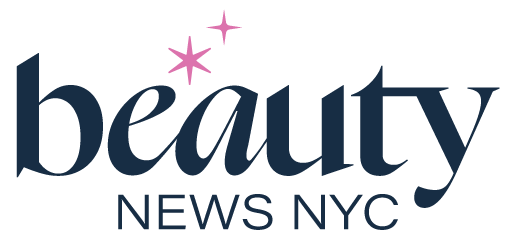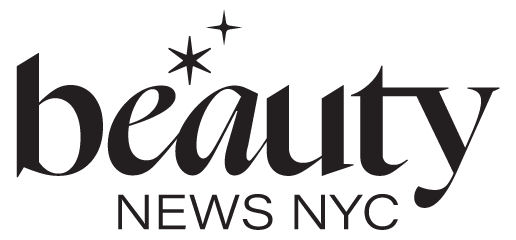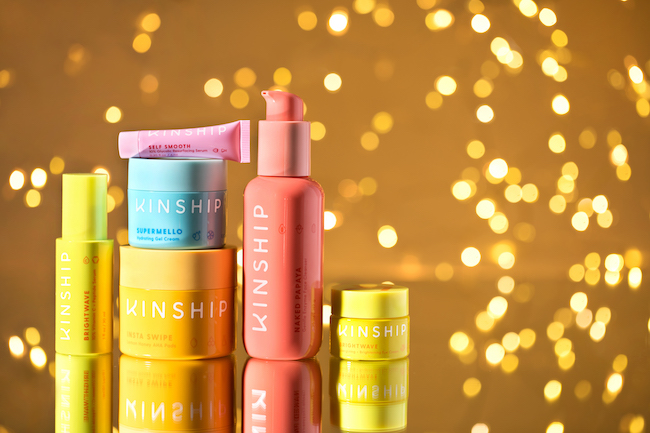
The universe is filled with things that we know exist even though we can’t see them, the unknown knowns: gravity, your mother-in-law’s evil eye, the Divine hand that guides you to the best rack during a sample sale swarm. And the skin microbiome. Like the gut microbiome, the naked eye can’t see the bacteria, good and bad, battling it out on our top dermal layer, but our health and immunity let us know which side is winning. Given the popularity of kombucha and kimchi for the gut, we know that certain nutrients and compounds help keep the top dermal layer protected and poised to fight inflammation and maintain clear, non-irritated skin. It’s only the most cutting-edge of clean, sustainable skincare brands that have focused their formulations on nourishing the skin microbiome. Recently launched Kinship by female founders Christin Powell and Alison Haljun is one of them.

In this year alone, Kinship has won many beauty awards for its innovative and affordable cleansers, treatments, and moisturizers. Down to brass tacks, first, the cleanse. The Naked Papaya Gentle Enzyme Milky Cleanser is a creamy blend of gentle, brightening enzymes and fruit extracts, jojoba oil, and their proprietary ingredient, Kinbiome™, a plant-based probiotic derived from radish root ferment. Applied to damp skin, it breaks down dirt, oil, and makeup while nourishing. Next, all skin types will love the award-winning Insta Swipe Lemon Honey Aha Exfoliating Pads, which deliver exfoliation and antimicrobial action with glycolic acid, manuka honey, and their signature probiotic, and are best used at night, a few times a week depending on skin tolerance. If you’re sebum-afflicted as I am, you can also incorporate Self Smooth 10% Glycolic Pore Minimizing Toner-Serum, to cut down on oil, hyperpigmentation, clogged pores, and texture for brighter, smoother skin. It contains glycolic acid and Marilyn Monroe’s favorite plant-based skin beautifier, strawberry.

A must in the Kinship line is the multi-award winning Brightening duo: Brightwave Face Serum 10% Vitamin C + Peptide Brightening Serum And Vitamin and C Brightening + Energizing Eye Cream. Both are chock full of everyone’s favorite active, Vitamin C, in a potent stabilized 10% form. With the addition of collagen peptides and the Kinship probiotic, it’s formulated to brighten dark spots, firm and reduce the appearance of fine lines. The eye cream packs the same form of Vitamin C and energizing botanical extracts to brighten and tighten the under-eye area. It’s a rich and buttery cream which absorbs beautifully, and is perfect as a base under concealer during the day. Because after all these actives, nothing less than a killer moisturizer will do, the Supermello Hyaluronic Gel Cream Moisturizer is brimming with hyaluronic Acid, coconut water, and marshmallow root for maximum hydration – it applies like a fluffy cloud of moisture on the skin.
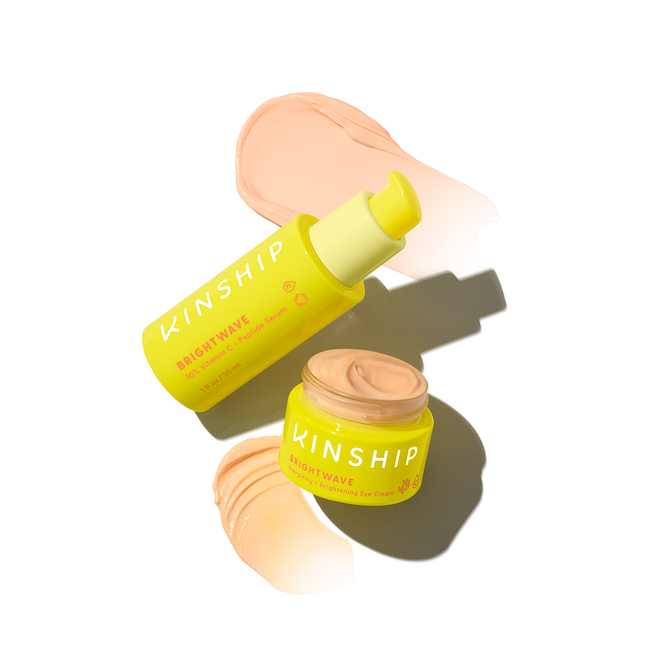 The last step for day, because everyone and I mean everyone should wear a physical sunscreen daily, is the Self Reflect Probiotic Moisturizing Sunscreen Zinc Oxide SPF 32. Its zinc oxide base is finely milled for maximum absorption, offers radiance and sun protection for all skin types, which means it doesn’t leave a white cast on darker skin tones. With the proprietary Kinbiome™ and absence of the ickies (Sulfates, BHT, Mineral Oil) in every product, as well as the recycled plastic container, Kinship is a clean, sustainable beauty best bet.
The last step for day, because everyone and I mean everyone should wear a physical sunscreen daily, is the Self Reflect Probiotic Moisturizing Sunscreen Zinc Oxide SPF 32. Its zinc oxide base is finely milled for maximum absorption, offers radiance and sun protection for all skin types, which means it doesn’t leave a white cast on darker skin tones. With the proprietary Kinbiome™ and absence of the ickies (Sulfates, BHT, Mineral Oil) in every product, as well as the recycled plastic container, Kinship is a clean, sustainable beauty best bet.
 After indulging in a full skincare regimen of Kinship’s microbiome-friendly products, from cleansing and exfoliating, to treating and moisturizing, I chatted with the Female Founder, Christin Powell, CEO and Head of Product at this sustainable-minded beauty brand. With a background as a chemist and resume which includes founding Juice Beauty and Product Development Executive at PerriconeMD, Christin has more than earned her distinction as a trailblazer in the clean beauty space, and expert in doling out entrepreneurial advice and sustainable best practices, as well as undertaking a massive environmental cleanup project off the shores of Indonesia.
After indulging in a full skincare regimen of Kinship’s microbiome-friendly products, from cleansing and exfoliating, to treating and moisturizing, I chatted with the Female Founder, Christin Powell, CEO and Head of Product at this sustainable-minded beauty brand. With a background as a chemist and resume which includes founding Juice Beauty and Product Development Executive at PerriconeMD, Christin has more than earned her distinction as a trailblazer in the clean beauty space, and expert in doling out entrepreneurial advice and sustainable best practices, as well as undertaking a massive environmental cleanup project off the shores of Indonesia.
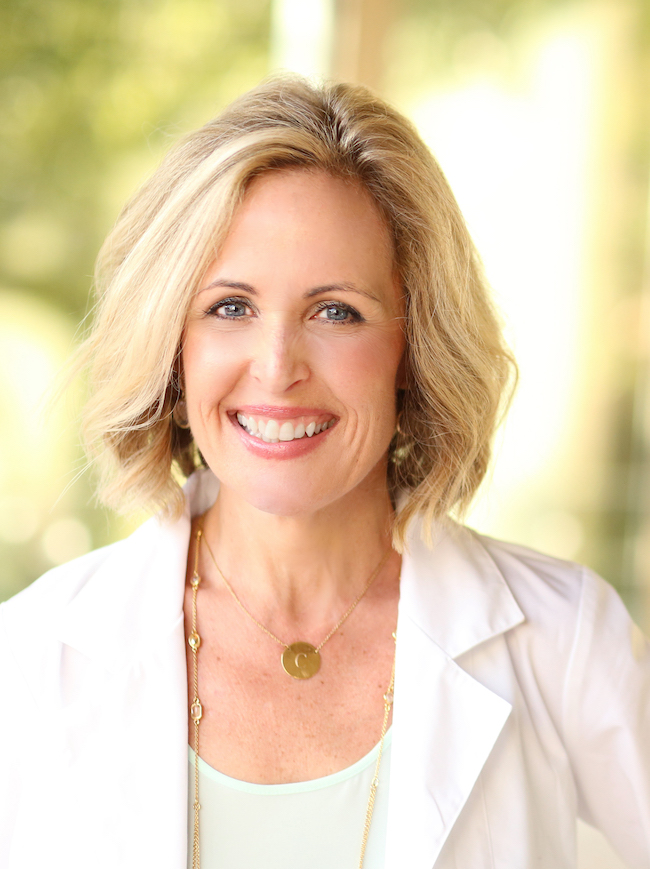
Q&A
There’s no official designation for clean beauty and wellness – how do you define them personally and as an entrepreneur?
I agree entirely that without third-party certification or governance, the term “clean beauty” is meaningless. The industry should be asking, “How should we define clean?” not whether products should be clean.
Kinship defines clean beauty by consciously choosing effective and safe ingredients for human health that don’t harm the earth or animals and that consider the circularity of the components used to package our products. The beauty industry uses a massive amount of petrochemicals, microplastics, and other hormone-disrupting chemicals that ultimately end up in our water, soil, air, oceans, sea life and back into the food we eat. It’s a lifecycle that we need to work on as an industry.
Kinship is positively impacting that lifecycle by reducing our use of petrochemicals in formulas and packaging, reducing or limiting the production of virgin plastic, and, at the same time, innovating on packaging materials such as compostable jars and bottles. I am personally very passionate about sustainability and operate from those values daily!
The beauty and wellness industries are sometimes criticized for fostering women’s insecurities about their appearance and exploiting that insecurity for profit, while others see the beauty/wellness industry as empowering. Where do you fall in this debate?
We’ve made some progress towards embracing self-acceptance versus perfection in the industry. However, the beauty industry is still focused on finding “problems” rather than uplifting people.
We should think hard about how we as an industry identify women’s “problems” and exploit those for financial gain, further perpetuating the idea that we aren’t OK as we are. We should lift people up, particularly young people, and celebrate our unique features and diversity rather than promoting the fear of being different or of the natural aging process. At Kinship, we believe that skincare is self-care, and your relationship with yourself is the most important one you can have.
Was your line born out of frustration with commercial products, the medical establishment, and/or doctors? Or were you motivated to address a specific need not addressed by most brands?
I had a need for accessibly-priced skincare that was effective and formulated for sensitive skin but wasn’t free of all the fun stuff – high potency of active ingredients, plant-based scents, luxurious textures. Too many clean beauty brands fall in the $100 per bottle range, which isn’t accessible to most people, including me. That was the impetus that started Kinship.
To what do you attribute this current boom in skincare, self-care, and the wellness industries?
People are becoming more aware of the importance of caring for their skin and health and their connection. Many people feel an ambient level of stress around the globe, and as people realize that health is wealth, they are looking for ways to feel better, sleep better, and look better. The skin is the largest organ in the body. It’s also the first line of defense, so if your skin is healthy, it directly indicates your body is healthy.
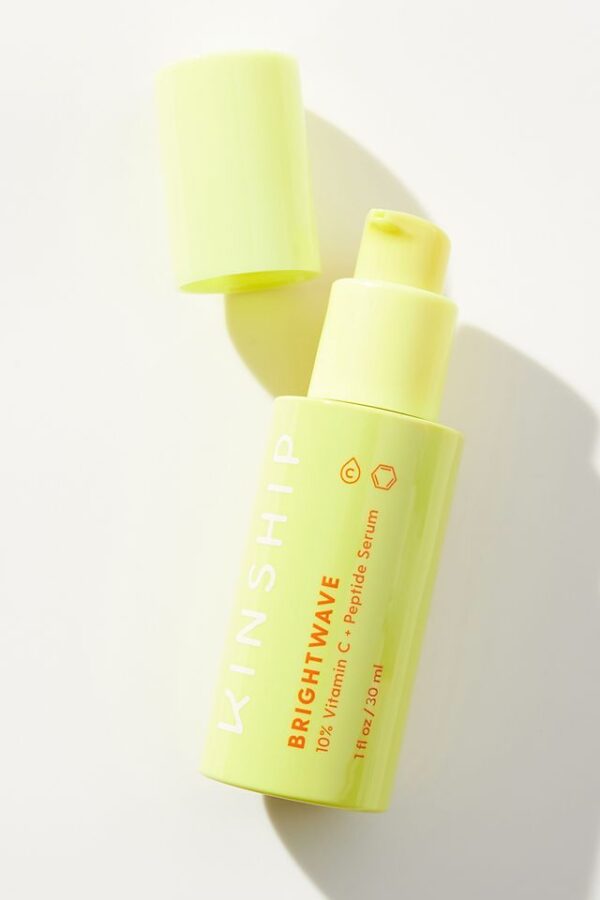
What was your eureka moment when you knew deep down that it was the time in your life, and in the market, to start your own brand and make your own products?
I’ve been an entrepreneur for 22 years, so it’s in my blood. I can’t imagine doing anything else! Kinship, in particular, came at a time when I felt that the beauty industry needed change. I believe my expertise in clean, clinical ingredients and formulations, wellness, and my passion for sustainability intersected beautifully to create this brand.
What had you wished a more seasoned business owner in any industry had told you when you started?
Be very realistic in your projections for the first few years because you rarely hit your numbers. It’s always better to overdeliver for your investors. Also, it’s good to start with a small marketing budget and use a test-and-learn strategy before spending big bucks on campaigns that can often produce little to no results.
Do you have formal business training, such as an MBA or a similar degree in chemistry? Or is your professional background mostly in the beautysphere?
I have MBA training from Boston University and a bachelor’s in economics and art history from UC Santa Barbara. Still, most of my expertise and skills came from starting and growing businesses from scratch in the beauty industry.
Is sustainability compatible with ROI and business growth?
The question is, If you think of the earth as the most significant asset we have, and that asset is in rapid decline due primarily to large corporations destroying it (fossil fuels, fracking, petrochemicals, clear-cutting forests), why wouldn’t every business owner on the planet want to prioritize that asset and preserve it in whatever way they can? We need to think long-term for future generations instead of prioritizing short-term profits.
How do you make sure that you stay tapped into the market in a way that promotes longevity instead of just riding trends?
I stay connected with macro trends happening in our society through artists, music, and youth culture, and look for what people will need in 5-10 years, not what they need now.
When the next generation of women beauty entrepreneurs make themselves known, how will you help or support them?
I love the idea of mentoring the next generation of beauty entrepreneurs by sharing my knowledge, whether it be from the skincare science side, how to raise money (or not raise money), or how to pick employees. There is so much to give back to this next generation, and I learn from them, too!
What are your favorite brands, aside from your own?
Moon Juice, Iris & Romeo, Westman Atelier, and Maude are some of my favorite brands.
What are your top 3 favorite ingredients, sources, and/or methods of extraction for clean ingredients?
Vitamin C (THD), Retinal, Pre and Post Biotics, Ceramides, Natural Plant Aromas and Omega Fatty Acids
What’s your most essential platform/source/voice for market research?
We use a variety of free market research as well as some paid platforms like Spate.
Describe the moment when you first opened and tried your first officially launched product.
I was in Copenhagen at a summit on sustainability when I received a sample of our first product. There were tears of joy and exhaustion all at once!
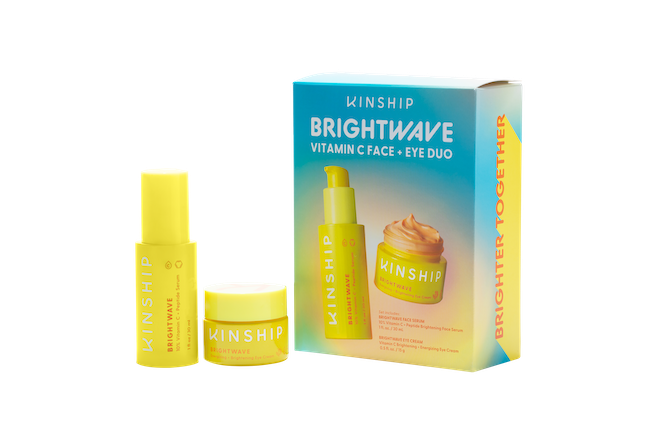 What product in your line are you most proud of? Describe the genesis of the product?
What product in your line are you most proud of? Describe the genesis of the product?
I’m most proud of our Brightwave 10% Vitamin C + Peptide Serum. I’ve been using and testing Vitamin C Serums my entire career and saw a big opportunity to innovate on the performance and aesthetic of Vitamin C.
Most Vitamin C Serums on the market are thin, runny, turn brown (due to oxidation), and can irritate the skin barrier. I figured out how to deliver a stable form of Vitamin C deeper into the skin without oxidizing (losing its potency) and without irritation, which is ideal for sensitive skin. It’s a potent 10% dose of Vitamin C along with collagen peptides that works to brighten, firm, and visibly smooth fine lines, all while supporting the skin barrier with our prebiotic technology.
Where do you see or hope to see the beauty and wellness industry in a few years?
I see beauty and wellness merging, clean ingredients being a must in all categories of beauty (makeup, skincare, fragrance), and every beauty company incorporating sustainability, inclusion, and social responsibility into their business from the start.
In addition to clean formulations and sustainable practices, diversity is one of the hottest trends in beauty and wellness. How does Kinship approach/embrace diversity?
Diversity is part of who we are. We are a small but diverse team, and have always made sure that we use the lens of inclusion in whatever we do, including recruitment, how we formulate and test products on diverse skin tones and all genders, using diverse models in our advertising and lifting up marginalized voices through our brand.
It’s not very common for beauty brands to engage in hands-on environmental clean up projects. What was the genesis of the idea to remove 6 tons of ocean waste plastic in and around the Java Sea and rivers in Jakarta?
There is so much ocean waste, particularly in the Java Sea. It is heartbreaking to see how it affects not only ocean and marine health but also the communities dependent upon the ocean for their survival. We partner with a company called ReSea that collects plastic from oceans and rivers around Jakarta using fishing communities; we then upcycle that plastic into new materials. The ocean is 70% of our planet, and ultimately we all depend on it for our survival.
How do you divide, conquer, and collaborate when researching and formulating a new launch?
We start by asking our customers what they are looking for and what is missing in their routine. We also involve our Kincircle, which is a group of about 100 people around the US close to our brand who test our products and give us feedback prior to finalizing a formula.
————
Read Part 1 in the “Female Founders Q&A” series with the Glow Bar CEO HERE.
Read Part 2 in the “Female Founders Q&A” series with the Uzima CEO HERE.
Read Part 4 in the “Female Founders Q&A” series with the Raw Sugar Living CEO HERE.
Read Part 5 in the “Female Founders Q&A” series with the Alchimie Forever CEO HERE.
